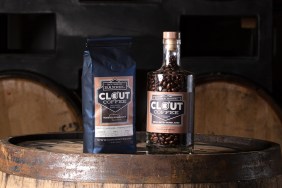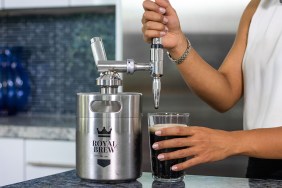We humans like to believe in our own independence of thought, an autonomous existence dictating our own interpretations of flavor and quality. But in reality, we are little more than Pavlovian subjects to the objects and materials of our desire.
Want proof? Get your hands on a cup of coffee and prepare for an experiment (there’s a reason we’re publishing this before dawn, after all).
In 2004, Charles Spence, a professor of experimental psychology at Oxford University, changed the way we hear potato chips forever. He discovered that the crispy sounds of a chip made the otherwise-boring Pringles taste fantastic. In his paper, “The Role of Auditory Cues in Modulating the Perceived Crispness and Staleness of Potato Chips,” Spence revolutionized the way potato chips are created and marketed – and in the process, created a new field of interest for corporations: how to trick consumers into believing their products taste better than they actually do.
Sound is quite the potent conduit of illusion, as Dan Pashman, host of The Sporkful podcast, found when he teamed up with Spence in a recent episode that explored the topic “Why You Should Listen to Your Food.”
Got that coffee ready? Take a sip of that delicious dark morning-savior, and actually explore the flavor before you gulp it down. And no, a caramel-blast soy mochacchino isn’t going to work here. Diabetes in a cup is not coffee. Ok, took your sip? Note the flavor?
Now take another drink and listen to this clip as you do:
Now do the same with this clip:
Notice anything? The first clip should have made your coffee taste more bitter, while the second clip should have made it taste sweeter.
SCIENCE!
It’s actually a conceptual flexibility which Spence calls “sonic seasoning.” Your brain has a set belief of what bitter and sweet flavors should taste like, an illusion according to Spence, so you expect a certain base flavor spectrum. “Your brain cannot deal with so much information, [so] by playing that high-pitched music, [it] draws your attention to that sweet taste,” he said.
Since these findings, British Airways has curated a playlist designed to improve the taste of food at high altitudes (good luck with that). Give this study some thought the next time you’re out at a restaurant, or cooking a meal for your significant other.
Learn more about the study here.


![Who Is [Spoiler's] Killer on General Hospital?](https://www.mandatory.com/wp-content/uploads/sites/10/2024/12/General-Hospital-Sonny-Dex-Mandatory.jpg?w=182&h=122&crop=1)






